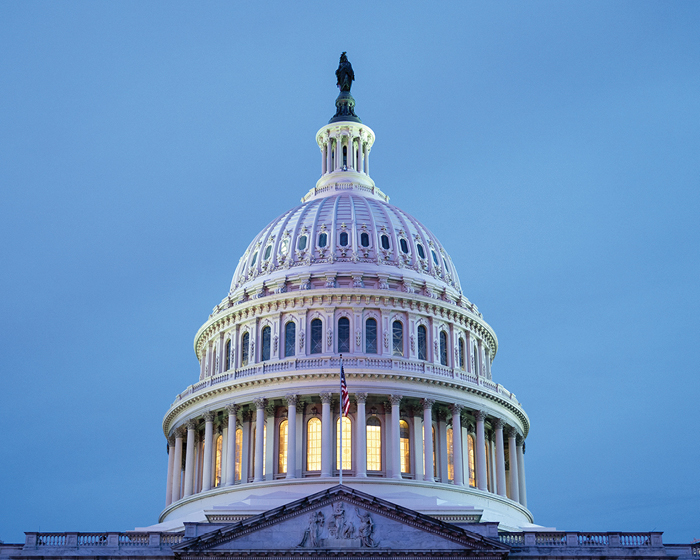Key Takeaways
- The government shutdown looks likely to continue through the rest of October.
- Nov. 1 could be a breakthrough point, as healthcare premiums could go up without a change to the current tax credits.
- Even if there is an extension of the current credit amount, premiums may still increase.
- Democrats demand more information about IRS layoffs.
- Shutdown scuffle could dim hopes for other year-end tax extensions.
If the current government shutdown lasts through the weekend, it will be the third-longest appropriations lapse in history. It’s likely to last longer, too.
The current conventional wisdom in D.C. is that, with the Trump administration continuing to pay members of the military and law enforcement officers with reserve funds, the next major deadline that could force the warring parties to find an agreement will be Nov. 1.
That’s when open enrollment for 2026 begins in most states for the healthcare exchanges established under the Affordable Care Act. One of the Democrats’ key demands during this impasse is for the expiration of enhanced premium tax credits for the exchanges, currently set for the end of the year, be extended. The enhancement expands the eligibility of the credit and also increases the amount of the premiums it will cover.
Without access to the credits, millions of Americans will have to pay more to keep coverage, and they’ll likely first find out about this hike while shopping plans during the enrollment period—after Nov. 1.
Some Republicans have said they’re open to working with Democrats to limit a premium spike and find a middle ground on an extension. The party is overwhelmingly against doing so as part of a shutdown negotiation, while Democrats insist that it must be included in any deal to re-open the government. The approach of November could force the two sides to overcome the logjam.
But the closer they wait until the end of October, the more the effects of the expiration could begin to sink in. While the reduction in tax credits will directly affect the price enrollees pay, it’s also expected to lead to higher overall premiums that may already be in place.
“Insurance premiums are rising higher than normal rate for 2026 partly due to the anticipation of healthier individuals deciding they do not want to pay the higher insurance rates with the elimination of the enhanced premium tax credits,” said Tonya Rule, an Eide Bailly partner who leads the firm’s ACA practice. “If Congress can come to an agreement before open enrollment closes and extend the enhanced premium tax credits it will motivate these individuals and others to sign up for coverage, thus helping the insurance market.”
According to the Congressional Budget Office (CBO), extending the credits would cause gross premiums for benchmark plans to be 7.6% lower through 2035, than they would be if the expiration went into effect. But that decrease would take a few years to be fully realized, and if an extension were to happen only days before open enrollment it's unlikely that there would be time to adjust the premiums.
Recent Tax Pieces:
Warren, Wyden Demand Bessent Give Details on IRS, Treasury RIFs – Chris Cioffi, Bloomberg Tax ($):
The firings, if allowed to happen, will have significant implications for Treasury’s ability to carry out its mission when the government reopens, Sens. Elizabeth Warren (D-Mass.) and Senate Finance Committee ranking member Ron Wyden (D-Ore.) wrote in a letter to Treasury Secretary Scott Bessent dated Oct. 15.
“They will also have a severe impact on Treasury’s component agencies, agencies that include the Internal Revenue Service (IRS), which is currently under immense strain due to layoffs, resignations, and chaotic leadership changes,” the letter said.
4 GOP ideas for an Obamacare subsidies compromise – Benjamin Guggenheim, Politico:
“About 90 percent of members of our conference, they feel strongly … that Obamacare itself and the subsidies have failed,” House Majority Leader Steve Scalise (R-La.) told reporters Friday. “It’s helped insurance companies pack their bottom line, but it’s crushed families who are paying higher premiums.”
But the increased back-channeling inside the GOP is a strong sign the administration is preparing for eventual negotiations on the tax credits and possible wider health policy changes.
ACA Tax Credit Remains at Center of Shutdown Fight – Katie Lobosco, Tax Notes ($):
“I think it’s going to be the longest shutdown in the history of ever,” Sen. John Kennedy, R-La., told reporters October 15.
Shutdown Could Dampen Congress’ Bipartisan Tax Extender Appetite – Zach C. Cohen and Chris Cioffi, Bloomberg Tax ($):
But other bipartisan tax credits are also expiring. Their backers hope a year-end deal averts those cliffs but acknowledge the dearth of trust between the parties amid the shutdown bodes poorly.
The Tax Angle: IRS Leadership Changes Amid Gov't Shutdown – Stephen C. Cooper, Law360 Tax Authority ($):
"The Internal Revenue Service Restructuring and Reform Act of 1998 requires the IRS to notify Congress in advance of any major reorganization, I would argue," including the creation of this position that basically operates as deputy commissioner, she told Law360. "They are designing this to get around the Federal Vacancies Reform Act, and also to get around having no nominee for IRS commissioner."
Make a habit of sustained success.



